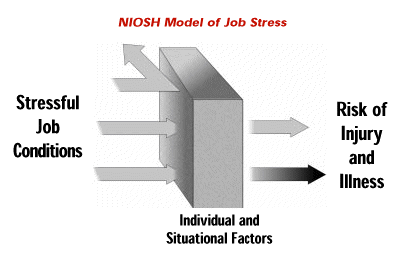This is job stress as it is perceived by the male and female teachers. Every individual has the dream of actualization and in when things do not go as planned for an individual, the individual is stressed up. War (1987) averred that the aspiration of meeting up with human needs and lack of self-esteem are symptoms of stress, this is because everybody requires some element of respect and honour in his/her working place.
According to Cooper (1985) in his study, he found out that non-manual workers in senior positions in companies are found to be less stressed than other set of workers of intermediate status like messengers, cleaners etc. as a still higher value of stress is experienced by unskilled workers whose jobs are mainly respectively and demand a lot of physical effort.Schools in Nigeria have been characterized by disrespect for moral values as teachers are treated with ridicule and contempt. Teachers don’t have regard from pupils and the government (Eme, 1996). Stress is delicate in nature and when perceived negatively or becomes of excess, it tends to affect the health and academic performance of the teacher or the individual involved. Campbell and Stevenson (1992) averred that school teachers often attempt to control and reduce their stress through avoidance, religious and social support or positive reappraisal. Teachers in schools are engulfed with so much stress and this can be reduced or controlled through effective time management and study techniques.
Macan (1990) found that teachers perceived themselves in control of their time reported greater work and life satisfaction and fewer job induced somatic tension, leaving home for school is a development mile stone that can exist psychological difficulties or trigger the emergence of new ones.
Moreover, leaving home, family and peer support and arriving at an unfamiliar place where high academic standards often creates pressure which can deepen depression of teacher and perception of job stress is limited, said that teachers also being stress into the classroom in the form of inherent personality traits.
Researchers like Baumrind (1996), Okafor (2002) and Durojaiye (1984) argued that female teachers actually experienced more symptoms of depression and anxiety than the male teachers.
Life can be stressful especially for teachers that are employed newly and where decision which will determine what they will do with their lives. It is a time where they set the path they have to take to reach their goals. They are faced with many challenges and questions such as selecting a school which may be in their home town or away from home, female and male teachers both experienced a great deal of job stress at this point of their life. However, researches show that female teachers experienced higher level of stress.

